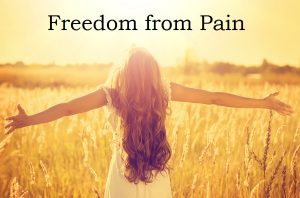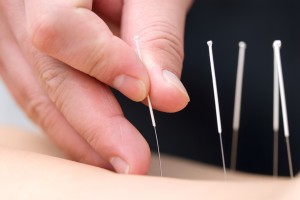 Pain of any type can be very debilitating. Not only does it affect someone’s physical functioning, but it affects one’s relationships, home – life, and overall well-being. With my training in Naturopathic Medicine, I have seen my fair share of patients struggle with pain and the abundant obstacles faced as a result of this struggle. There is hope. This blog will aspire to enlighten you to the different ways that Naturopathic Medicine can help with pain, and what the research says. I should caution you that pain is a very broad topic, and so with this article, I will focus more on arthritis, though this is not the be all and end all when it comes to pain.
Pain of any type can be very debilitating. Not only does it affect someone’s physical functioning, but it affects one’s relationships, home – life, and overall well-being. With my training in Naturopathic Medicine, I have seen my fair share of patients struggle with pain and the abundant obstacles faced as a result of this struggle. There is hope. This blog will aspire to enlighten you to the different ways that Naturopathic Medicine can help with pain, and what the research says. I should caution you that pain is a very broad topic, and so with this article, I will focus more on arthritis, though this is not the be all and end all when it comes to pain.
What is Arthritis?
The word “arthritis”, when taken from its Greek context, clearly sums up what arthritis entails: “arthro” means “joint”, and “it is” means “inflammation”. Therefore, arthritis indicates really any condition where there is inflammation in the joint. There are various different classifications of arthritis, including, but not limited to Rheumatoid Arthritis, Osteoarthritis, Gout, Septic Arthritis, Psoriatic Arthritis, and Lupus. Many other conditions may involve arthritis or arthritic changes, but these are the primary stand – alone classifications of arthritis. Based on these different types of arthritis, there may be different causes of origins. For example, osteoarthritis may be caused by excessive use of the joint, where as rheumatoid arthritis can be caused by autoimmune destruction of the joint. As a result, the approach that would be taken for each of these different forms of arthritis would be different based on their mechanism of destruction. That being said, some of the approaches listed below may be effective for some forms of pain and not others. This speaks to the importance of consulting with your Naturopathic Doctor for an individualized treatment plan that specifically fits your symptom picture.
Based on the research, the following treatment options may be helpful for pain and arthritis:
- Traditional Asian Medicine and Acupuncture
- Botanical Medicine
- Nutrition, Diet and Lifestyle
- Hydrotherapy
- Homeopathy
- Physical Medicine
Ultimately, the goal of treatment will be to treat the root cause of the pain. As mentioned above, based on the specific type of arthritis you may be suffering with, the root cause may be different for you versus another. As a result, the following list offers examples as to what goals might be developed for a treatment plan for an individual:
- Correct for deficiencies
- Reduce pain and manage it effectively
- Improve mood (often individuals experience depression because of their chronic pain)
- Decrease inflammation
- Address and eliminate any triggers to inflammation that may be present in the diet
- Improve immune functioning
- Alter lifestyle and diet to decrease pain
How can Traditional Asian Medicine help?
Traditional Asian Medicine views the body differently than western medicine. Its theory suggests that when there is an imbalance in the body system, disease manifests. Each “organ” is associated with an emotion, and individualized functions in the body. For example, the liver and spleen control the functioning of the muscles, joints, and ligaments. In addition, one of the primary functions of the spleen is to Transform and Transport water. This could lead to an excess amount of fluid in various areas of the body including the joints. These organs may play a role in arthritis but this is truly dependent on your individualized presentation. Once a specific diagnosis is made, a treatment plan is created, and may involve using acupuncture, herbal formulas, diet, or lifestyle, all with the purpose of bringing the body back into a state of balance.
Specifically regarding acupuncture, acupuncture has been shown in some studies to be beneficial Rheumatoid Arthritis when combined with electroacupuncture. One particular study found that knee pain was relieved within 24 hours of treatment; and the acupuncture was found to have benefits that last up to 4 months in some. http://onlinelibrary.wiley.com/doi/10.1002/14651858.CD003788.pub2/abstract;jsessionid=67DB60F605B9F7B238341B5CCA2C903A.f02t03?deniedAccessCustomisedMessage=&userIsAuthenticated=false
Another study found that acupuncture was beneficial for osteoarthritis of the knee; specifically for pain an physical functioning.
http://www.ncbi.nlm.nih.gov/pmc/articles/PMC2810544/
Finally, in a study specific for patients suffering from gouty arthritis, individuals experienced decreased pain and decreased uric acid levels when treated with acupuncture for 1 month.
http://en.cnki.com.cn/Article_en/CJFDTOTAL-ZGZE200203002.htm
How can Botanical Medicine help?
Botanical formulas have similar effects to medications, often without the side effects, however this is not true for all herbs and plants. Specific herbs or plants will be selected based on their properties and combined based on the specific individual’s presentation and symptoms associated with their pain. For example, one person may benefit from decreased inflammation, where as another may need help with immune functioning. Some beneficial properties that some useful herbs may have include: anti – inflammatory, rubefacient, immunomodulating, and adaptogenic.
Much research has revolved around the anti-inflammatory effects of various herbs including some lesser thought of herbs such as stinging nettle and black cohosh (http://www.ncbi.nlm.nih.gov/pubmed/22700248). A commonly discussed herb when pain is mentioned is turmeric. Turmeric has been shown to decrease inflammation, prevent inflammation, and decrease swelling (http://www.arthritis.org/living-with-arthritis/treatments/natural/supplements-herbs/guide/turmeric.php).
How can Nutrition and Diet help?
Many different foods can contribute to inflammation in the body as a whole. The Standard American Diet (SAD) often promotes inflammation in itself, and so, can contribute to increased pain in individuals with arthritis. If an individual is eating relatively healthy, inflammation can still present itself. For some individuals, night shade vegetables such as tomatoes, peppers, potatoes, zucchini and eggplant can contribute to increased inflammation.
Similar to how many foods can promote inflammation, there are many foods that can decrease inflammation. These foods can include those higher in omega 3 fatty acids such as flax seed, hemp seed, and fatty fish such as salmon.
One study has shown how diet and supplementation can both by themselves or in combination help improve outcomes for those suffering from osteoarthritis or rheumatoid arthritis (http://www.sciencedirect.com/science/article/pii/S0049017205000879). A naturopathic doctor can help you to develop a diet that best suits your individual needs, including developing strategies to motivate you to eat a proper diet. In addition, they can correct for any nutritional deficiencies that may be aggravating your stress and overall health.
How can Hydrotherapy help?
Hydrotherapy involves alternating hot and cold water applications to achieve the following goals: promote detoxification and relaxation, increase circulation, improve immune system functioning, promote digestion, and decrease pain. Based on all of the following actions, hydrotherapy could be beneficial for pain based on the different root causes. Hydrotherapy can be performed via a number of methods: constitutional hydrotherapy, sauna, peat bath, Epsom salt baths, or alternating hot and cold showers. In one study looking into hydrotherapy and rheumatoid arthritis, the participants experienced decreased joint tenderness and improved range of motion of the knees with warm water immersion (http://onlinelibrary.wiley.com/doi/10.1002/1529-0131(199606)9:3%3C206::AID-ANR1790090309%3E3.0.CO;2-J/abstract).
How can Homeopathy help?
Homeopathy is an energy medicine that involves finite doses of a substance that are diluted in water, which amount to a higher therapeutic dose overall. In this form of medicine, individualized remedies are chosen based on the individual’s specific symptoms and presentation. Each person requires a different remedy based on their unique presentation. Homeopathy does not interact with any medications, making it quite useful especially if you are taking other medications.
Homeopathy is challenging to study in research, but research does exist. In one particular study, the process of conducting a homeopathic interview is where some individuals saw relief from pain for their rheumatoid arthritis (http://rheumatology.oxfordjournals.org/content/early/2010/11/08/rheumatology.keq234.short). Other studies have shown that homeopathy can be beneficial for osteoarthritis pain and various other symptoms (http://www.sciencedirect.com/science/article/pii/S1475491699904496).
How can Physical Medicine help?
Physical medicine involves a number of different potential therapies. These therapies might include ultrasound, laser therapy, electroacupuncture, cupping or Gua Sha. The general effect of these therapies includes relaxation, increased circulation, decreased pain, improved wound healing, and decreased inflammation.
For example, some research has shown that cupping in combination with conventional therapy can help to modulate the immune system for the better in patients with rheumatoid arthritis (http://europepmc.org/abstract/med/17977209).
How can Lifestyle changes help?
Various lifestyle factors can play a role in pain. By improving sleep, exercise, scheduling, and coping mechanisms, it is possible that some individuals may have reduced pain. Naturopathic doctors are trained to help individuals through lifestyle counselling, and can use methods use as motivational interviewing or cognitive behavioral therapy to do so.
Research has demonstrated that poor sleep can be quite common in individuals experiencing pain (http://www.sciencedirect.com/science/article/pii/S0022399904000327). As a result, this can further increase their pain through being unable to rest and relax.
Have you benefited from reading this blog? Know someone that would benefit as well? Share, Like, Comment, or Tweet this article, and let me know what you think.
Some of the information provided above may not be appropriate for everyone, please consult with your doctor before trying any of the above. If you are interested in Naturopathic Medicine and wanting a different approach to your health care needs, contact Dr. Elisha Cook ND by calling 519-537-7058 and book your appointment today!
 On March 1, 2017, I am inviting any patients of mine who are interested in receiving acupuncture for a reduced rate to join me at the clinic for a “Acupuncture Clinic”! The only change is that the acupuncture will be in a group setting. You will not have any body part exposed that you do not feel comfortable with, but we do ask that you wear comfortable clothes that allow access to the shoulders and knees (in the event that the needles are put in these spots).
On March 1, 2017, I am inviting any patients of mine who are interested in receiving acupuncture for a reduced rate to join me at the clinic for a “Acupuncture Clinic”! The only change is that the acupuncture will be in a group setting. You will not have any body part exposed that you do not feel comfortable with, but we do ask that you wear comfortable clothes that allow access to the shoulders and knees (in the event that the needles are put in these spots).
